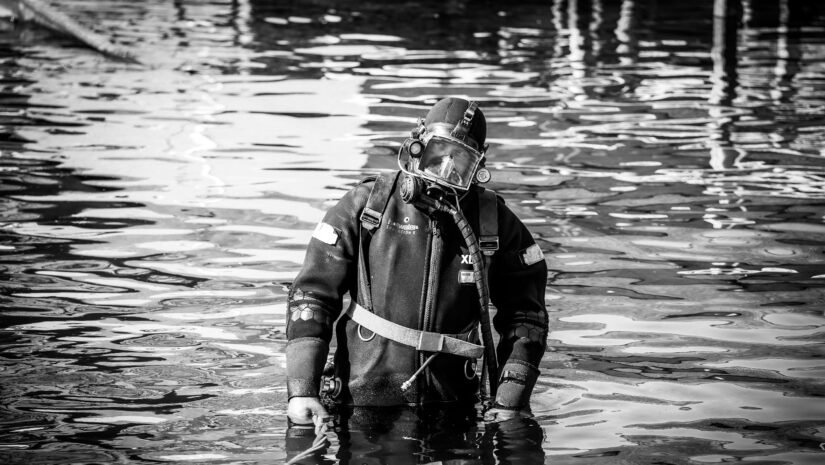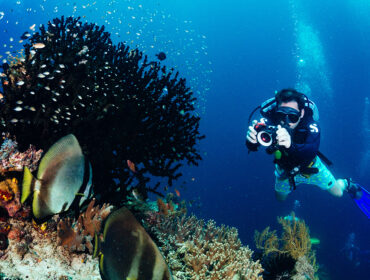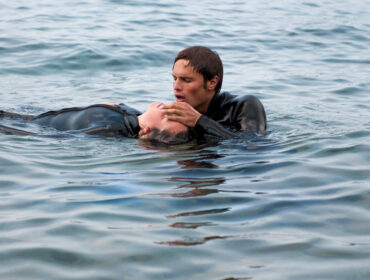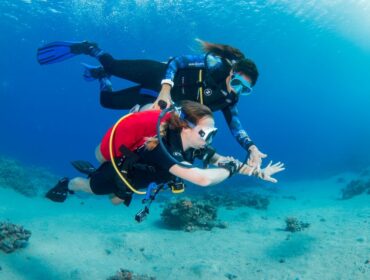The catharsis you experience when deep diving is irreplaceable. However, before you cruise into deep dives, understanding how depth affects your body is crucial. This isn’t just for your safety, but also for the people who are just curious about how deep dives can change their physiology.
So strap in, get your diving gear, and let’s discover the marvels of human adaptability as we learn about the science of deep diving!
Understanding the basics of pressure
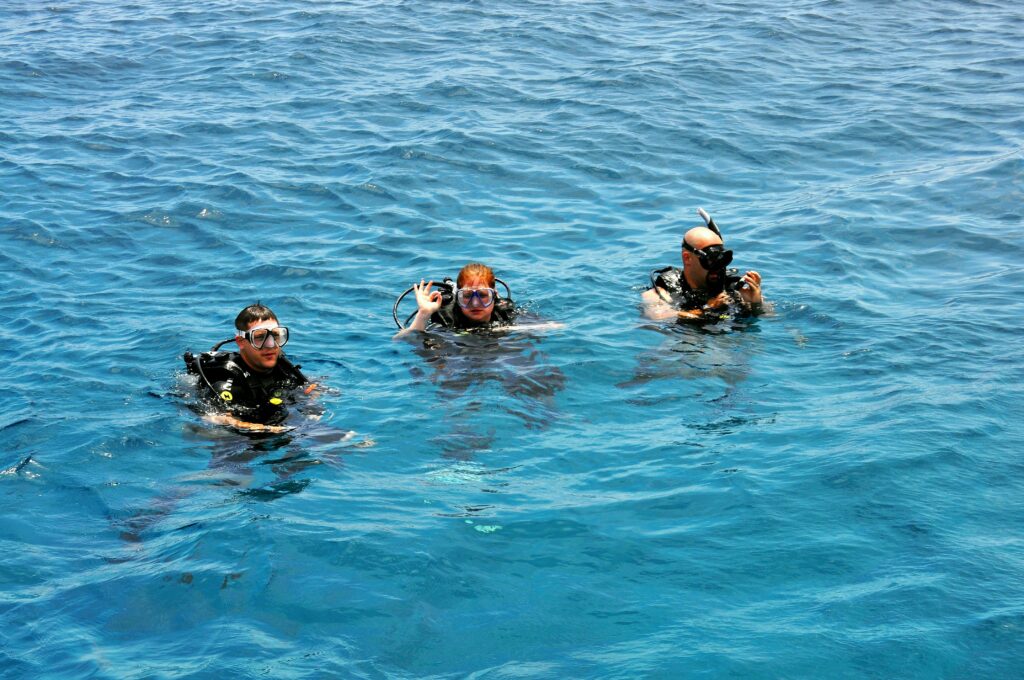
Water is about 800 times denser than air, and with every 10 meters of descent, pressure increases by one atmosphere. This escalation in pressure compresses air spaces in our bodies affecting all of your organs in the process.
This just means that the deeper you go, the more your body is compressed by pressure.This is why divers usually have protocols that they follow when descending and ascending from deep waters.
Your body’s changes in the depths
Nitrogen narcosis
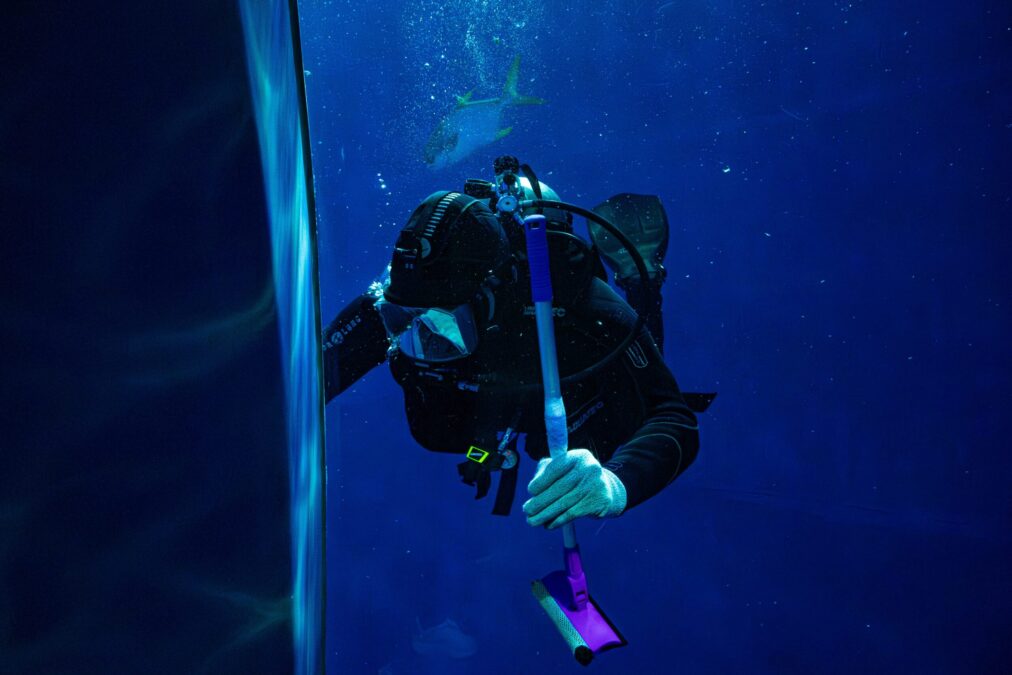
If you’ve attended a diving lecture before, you may have encountered this phenomenon. After all, pressure isn’t the only thing you need to worry about when taking a dive!
Because nitrogen becomes more soluble the deeper you go, you run the risk of getting intoxicated the longer you stay at depths beyond 30 meters. This is usually dubbed the martini effect, because its symptoms are parallel to alcohol intoxication.
This is why divers often use gas mixtures to reduce nitrogen content and allow them to stay focused even in great depths.
Decompression sickness
Have you ever wondered why divers don’t just swim straight up when they want to ascend to the surface? This is because ascending too quickly can lead to decompression sickness. When our body experiences a rapid decrease in pressure around it, it’s unable to adjust — which is incredibly dangerous.
To prevent DCS, divers ascend slowly — perform safety stops, and use dive computers to monitor ascent rates and nitrogen levels. Understanding how depth affects your body is vital to avoid such life-threatening conditions. This is also why experts advise that you shouldn’t hop on a flight after a deep dive, as the dissolved gases in your body haven’t had the chance to regulate.
A full-body workout

Every dive is a workout in disguise. You’re kicking, floating, adjusting buoyancy—all while resisting water’s natural drag. Who needs a treadmill when you’ve got a coral reef?
Better yet — diving strengthens your core and stabilizer muscles, improves your cardiovascular health, and increases your lung capacity as well. Just like swimming, it’s an amazing exercise to improve your endurance!
The diving reflex
When you go on a dive, your body instantly adjusts to adapt to the new environment. This is typically triggered by cold water contact on the face — and it proceeds to slow down the heart rate and prioritizes delivering oxygen to vital organs. This reflex enhances our ability to operate and withstand the challenges that come with deep diving.
Dive deep into the depths with knowledge
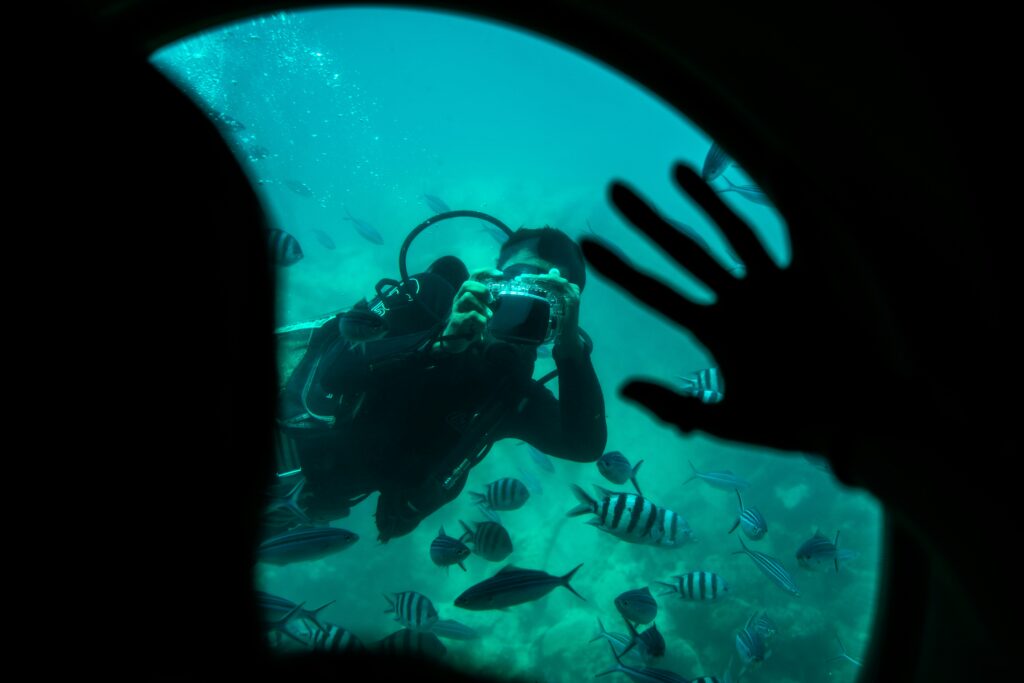
Nothing is more dangerous than a diver who doesn’t understand his own body. Although getting to unravel the mysteries of the depths is exciting, it’s important for you to know how the depth affects your body before you even think about taking the plunge!

